The answer is yes! All of these items are part of a big loop, meaning they can be recycled again and again. Recycling is a vital part of the circular economy which is about reducing waste by keeping things in use as long as possible. When you recycle your stuff in the correct bin at home, you’re part of the circular economy and #InTheLoopGM.
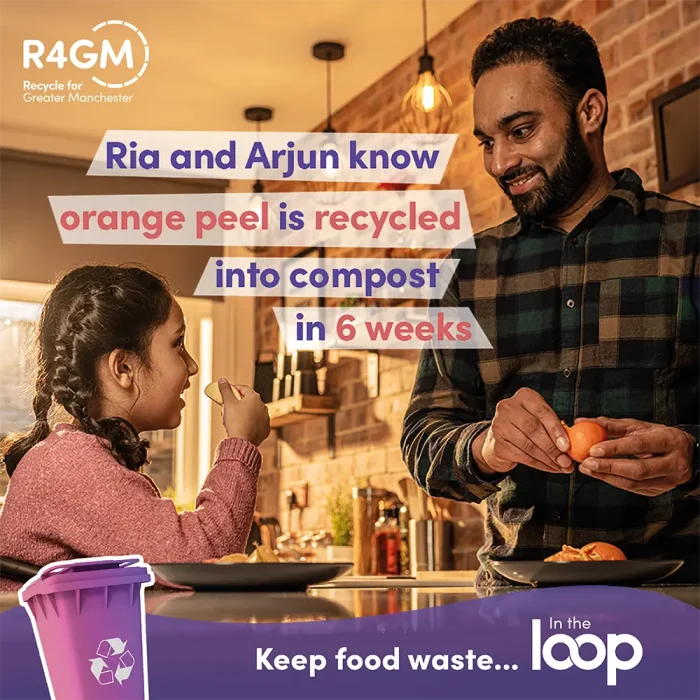
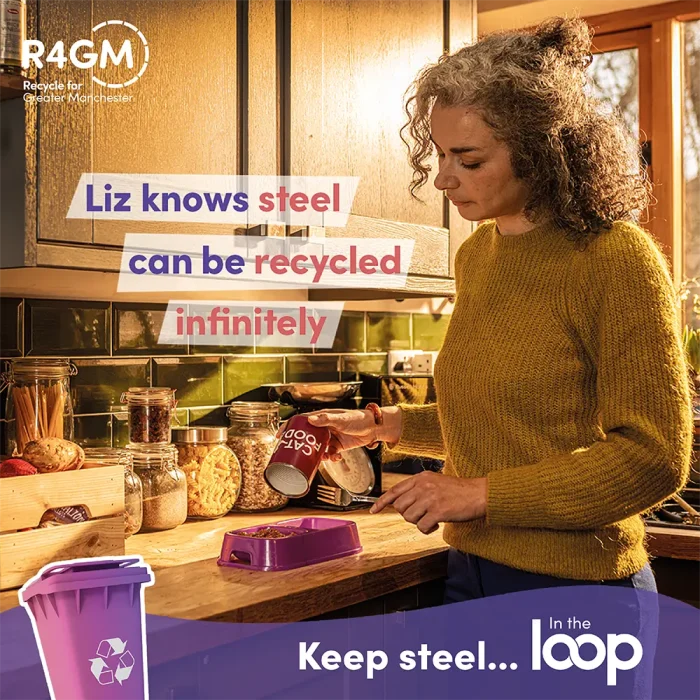
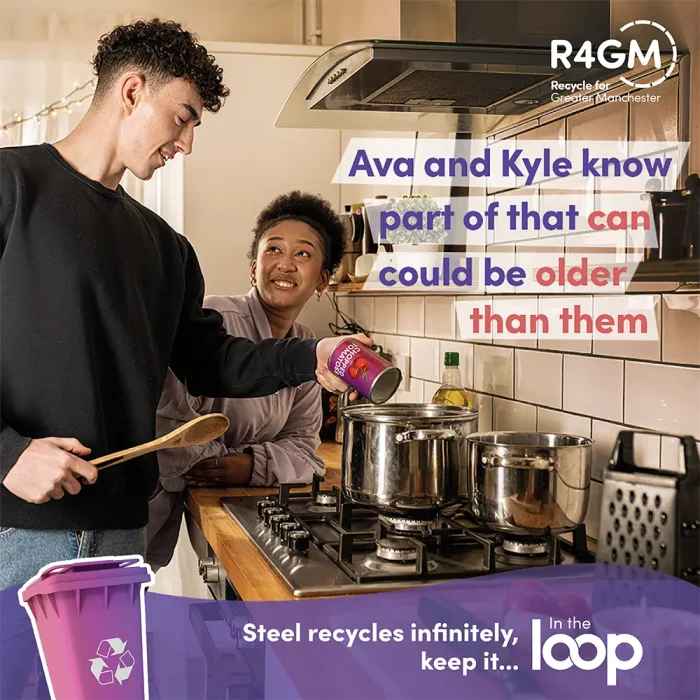
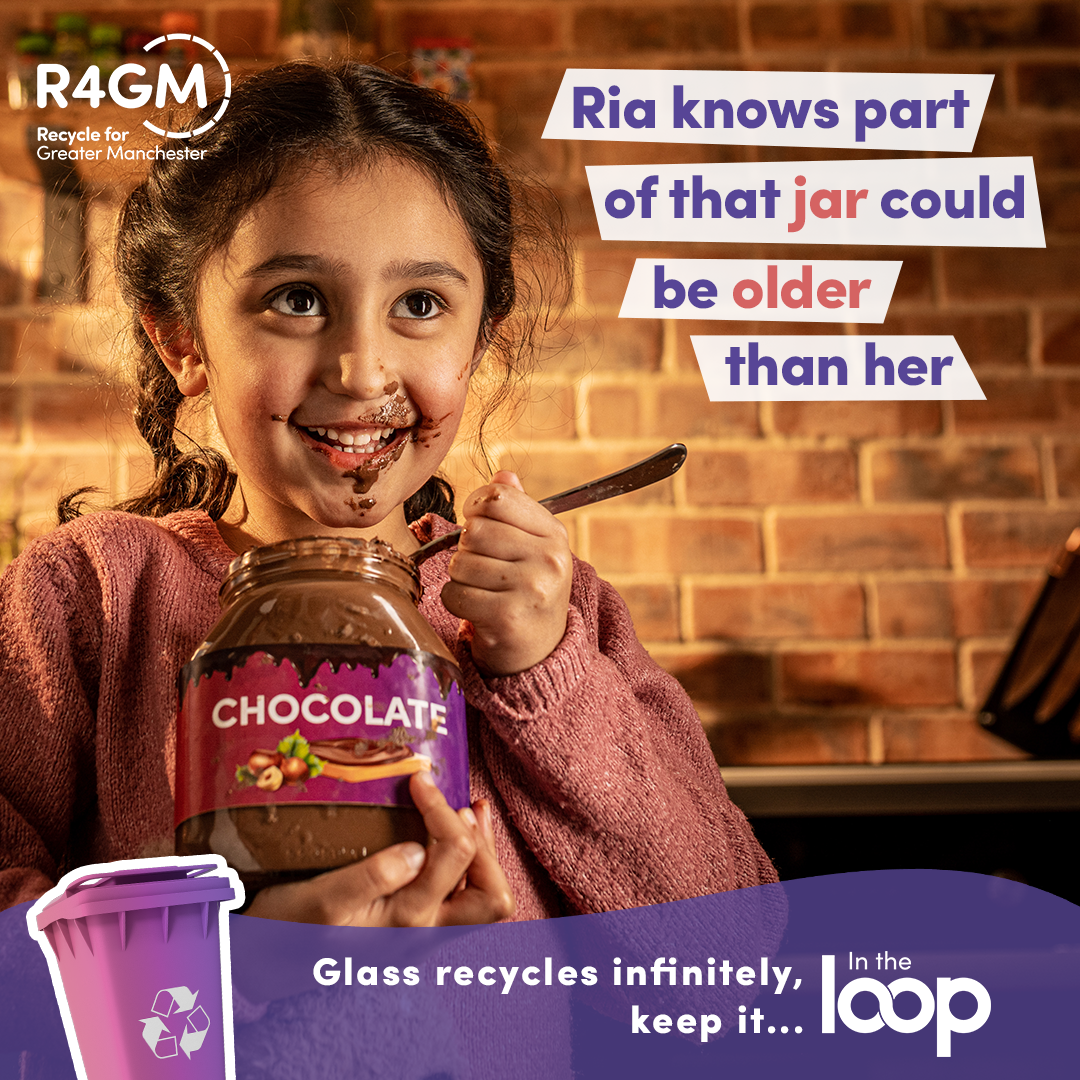
YOUR WASTE ISN’T RUBBISH
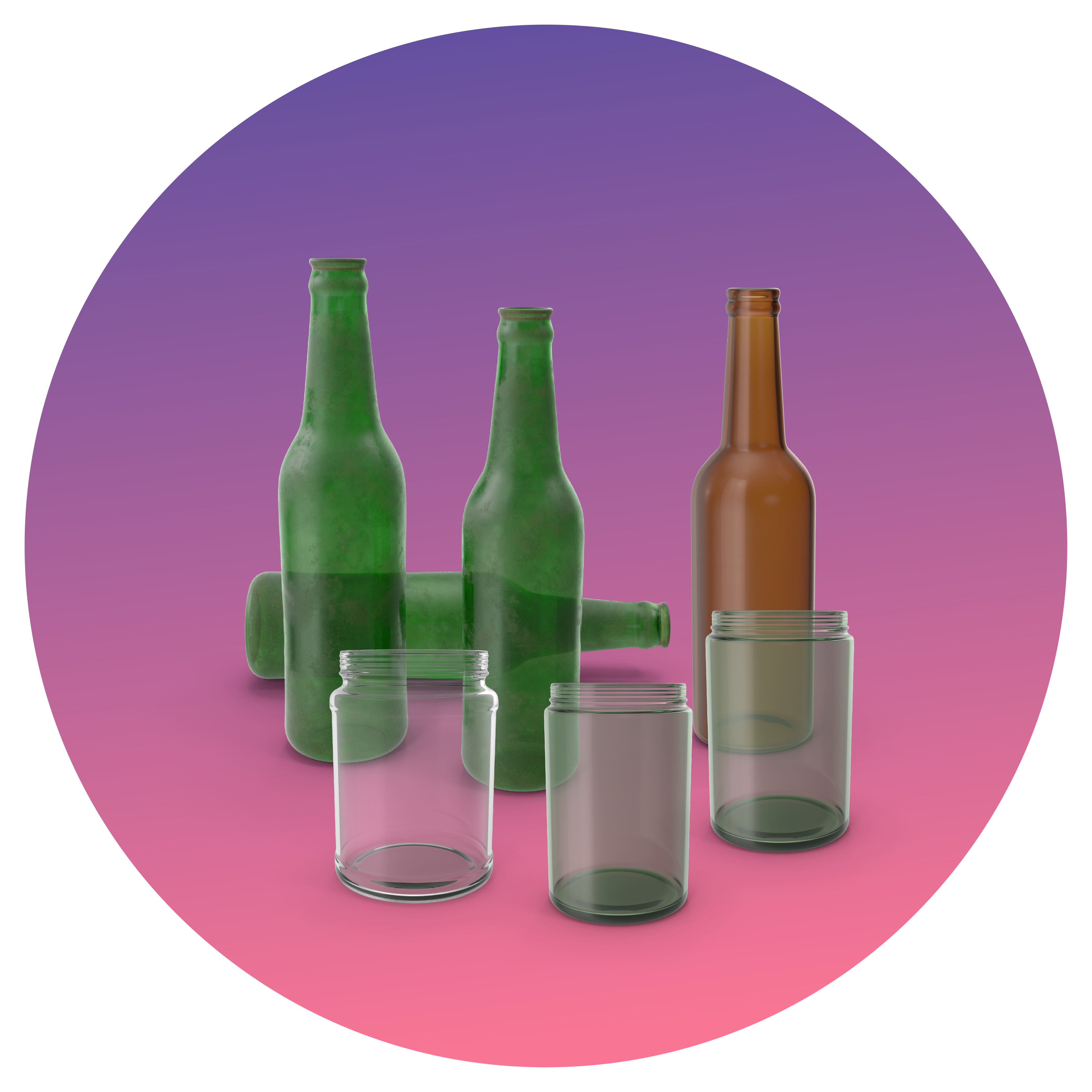
Glass can be recycled infinitely.
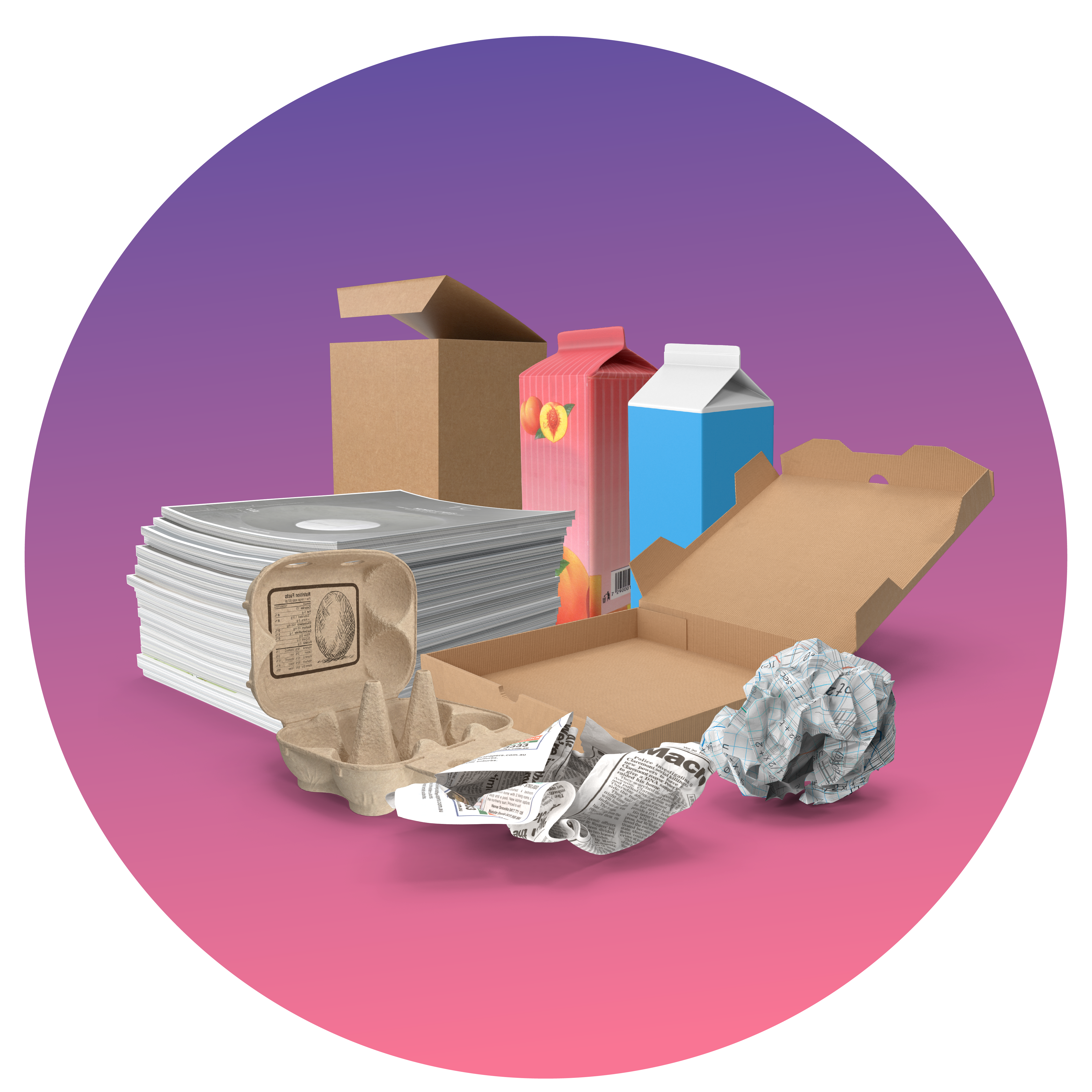
It takes just 7 days to recycle a newspaper into a new one.
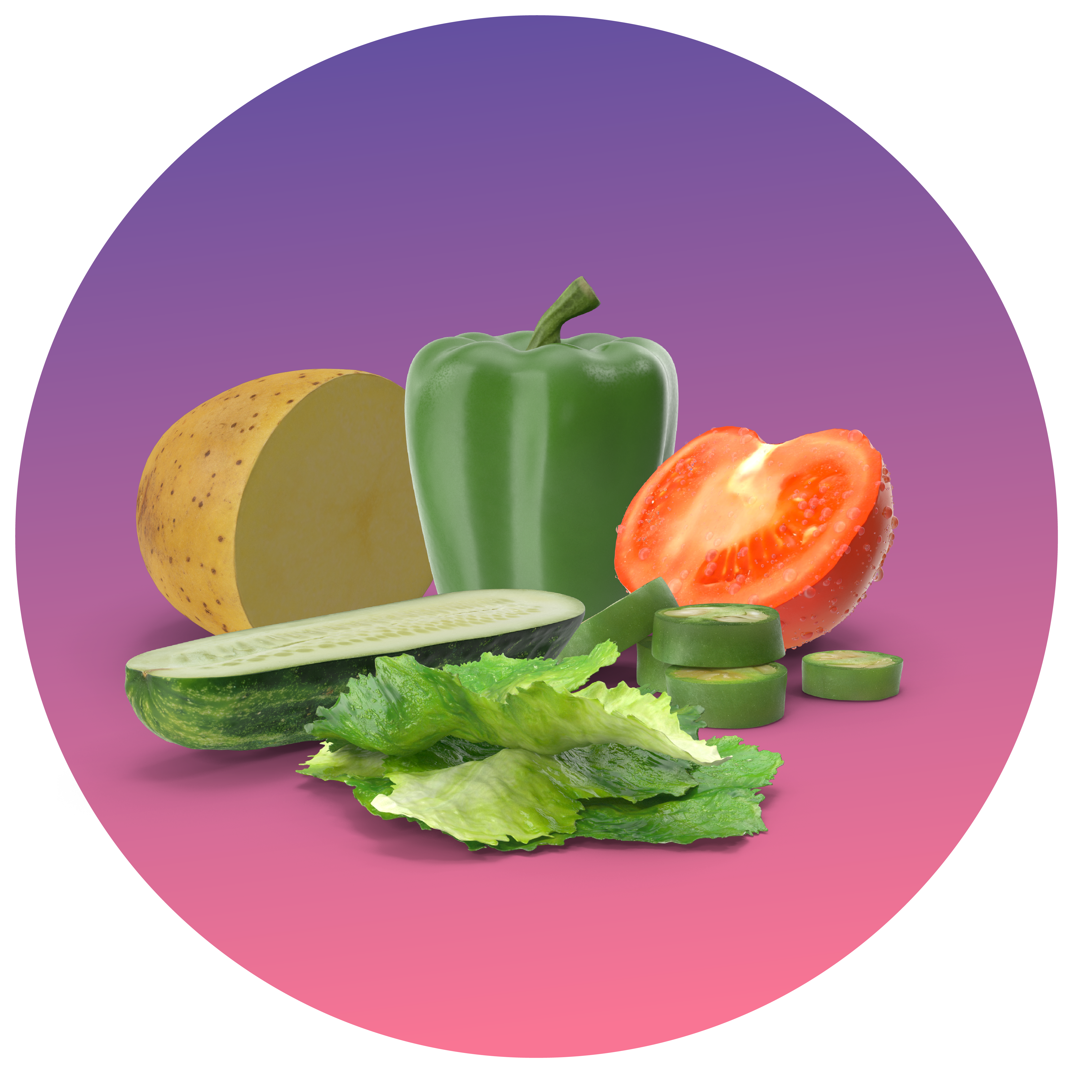
50% of all food waste is still edible.

Cardboard can be recycled 25 times.
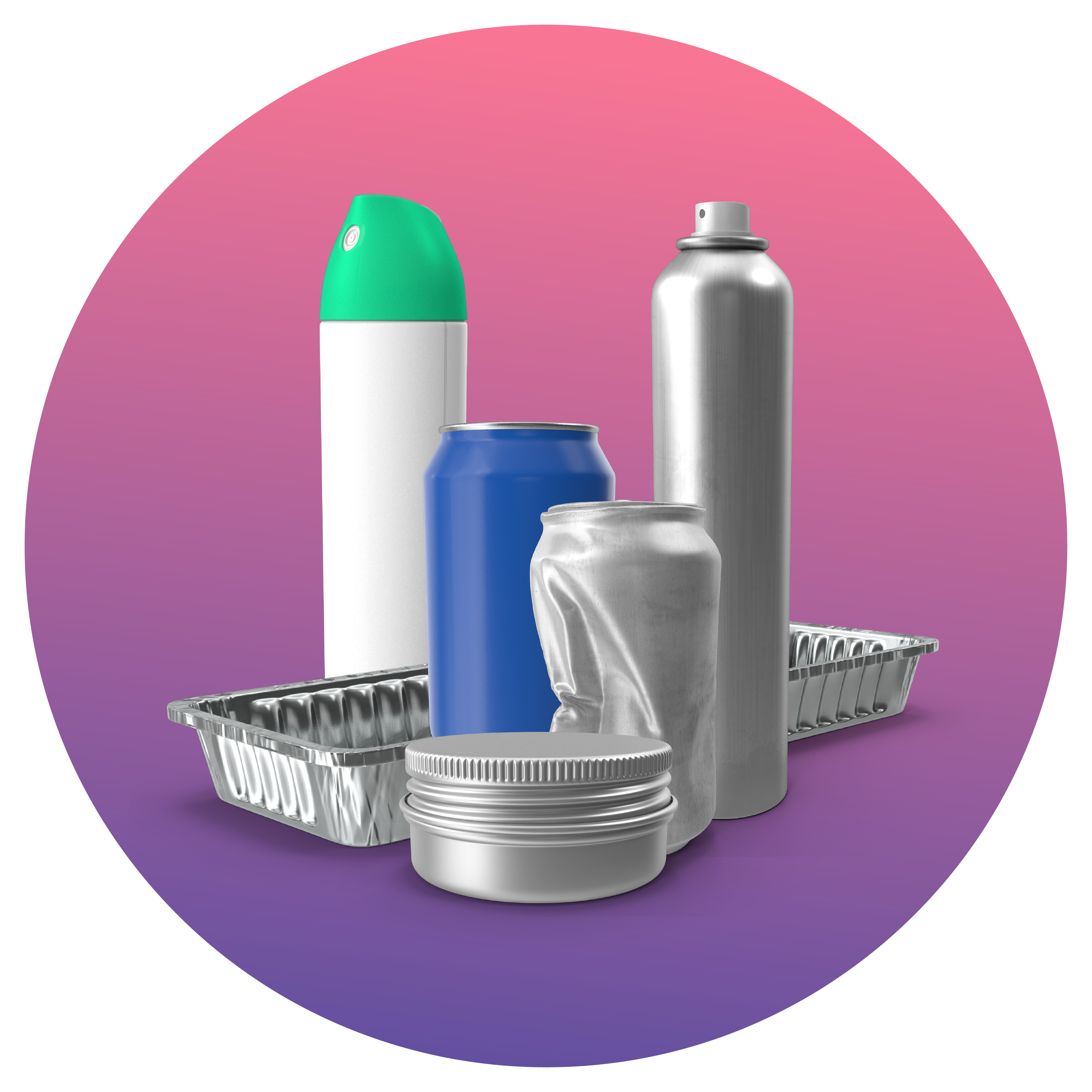
A drinks can gets recycled and back on the shelves in just 6 weeks.
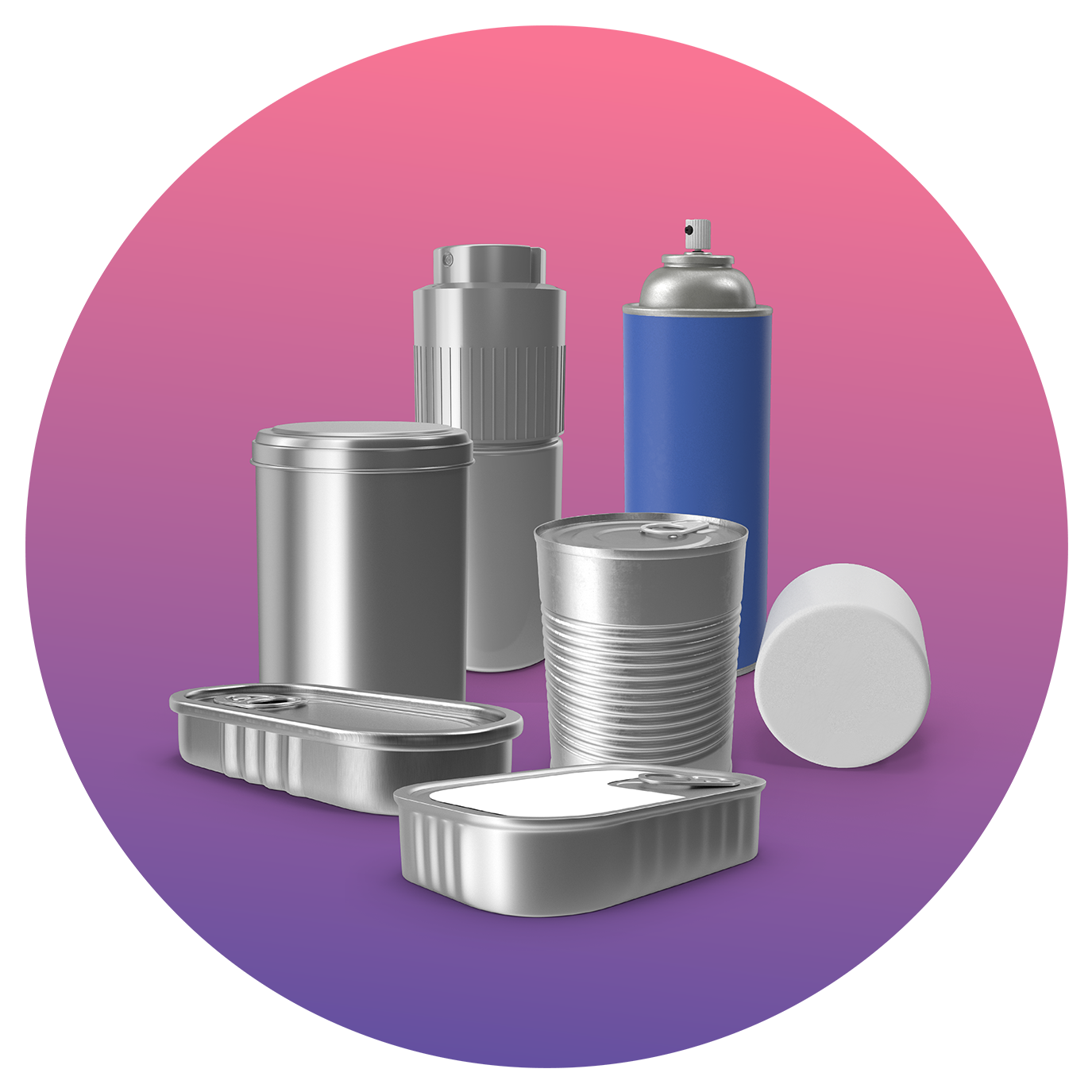
Can be melted down and recycled infinitely.

Never heard of the phrase? You’re not alone, 9 in 10 adults don’t know what the circular economy is. Although the phrase might be new, you’re probably familiar with the concept. A circular economy focuses on reducing the amount of waste we produce by repairing and reusing to get the maximum value out of everything we buy and use, finally recycling everything fully.

We are using more resources than the Earth can replenish and soon we’re going to run out. The way we consume isn’t sustainable, every year we use up 1.7 earths worth of resources. We must change how we think about waste to protect the planet’s future.
The current economy is linear, we take things from the Earth, make things and throw them away. The circular economy is designed to reduce consumption and waste, understanding that everything we use has value and extracting the full value from everything.

As well as helping create a healthy more sustainable place to live, the circular economy can benefit you financially. Reducing how much we buy, choosing more sustainable products or shopping pre-owned can lead to big savings. Repairing things and using things to the maximum is going to save you money.

GM Green City is Greater Manchester’s plan to combat climate change and achieve net carbon by 2038. It focuses on making better choices, investing in and embracing more sustainable businesses, lives and lifestyles.
According to a 2022 study by WRAP, the Northwest has the second highest number of jobs within the circular economy and that figure will continue to grow.

If you recycle, donate unwanted things to charity or have ever tried to fix something before throwing it away, you’ve contributed to the circular economy.
If we all make small changes, we have the power to make a big difference: